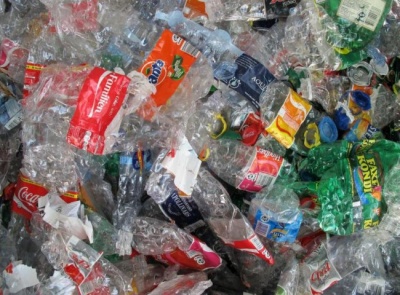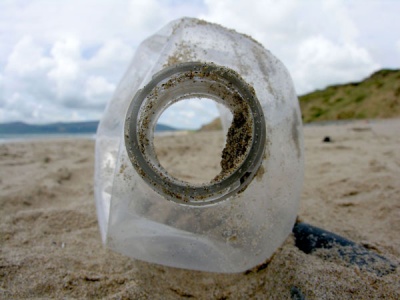SUEZ defends ‘win-win’ deposit systems after Defra snub

Under a DRS, an extra 10 or 20 pence would be added to the cost of packaging, in this case plastic bottles, which would be recouped when that packaging is then brought back to a retailer
Despite warnings from local authority waste collection and packaging groups that a DRS would harm council collections and potentially damage the rate of recycling in the UK, David Palmer-Jones, CEO of the recycling and recovery UK division of the waste management firm, which has 10 municipal collection contracts in the UK, says that investing in a UK-wide scheme for plastic bottles specifically “makes not just environmental sense but, importantly, economic sense too”.
Bringing in a system, Palmer-Jones said, would put “pounds in the pocket of both households and business through reduced waste disposal costs and reduced need to buy raw virgin materials”.
He added: “The country has already made huge leaps in the past decade, shifting from a throw-away society to culture of reuse and recycling, but we can't waste an opportunity to make further improvements.
“A bottle deposit scheme would help consumers and producers make the step-change required to reinvigorate the country’s stalling recycling performance and help us to unlock the value in packaging as a commodity, which can be put back into the supply chain rather than throwing it away.
“For many years, I lived and worked in Sweden, which has long had similar bottle deposit schemes in place, so have seen first-hand just how effective these systems can be at improving recycling, and how well they can be embraced by society.”
DRSs would cause council hit
When the reports of Defra’s reluctance to take on a nationwide DRS emerged this week, supposedly after being unimpressed by the results of a trial in Scotland, the On-Pack Recycling Label (OPRL) scheme, which aims to inform consumers how to effectively recycle their packaging, tweeted that taking on the scheme would ‘cannibalise’ council collections and would lead to an overall reduction in recycling.
By asking consumers to instead return their bottles to retailers, opponents argue, confidence in the amount of plastics being recycled through kerbside services would be hit, causing a loss of revenue to councils that are already struggling with large budget cuts and potentially leading to the removal of separate plastics collections in councils that provide them.
The Local Authority Recycling Advisory Committee (LARAC) quoted the tweet, saying: ‘Instead of deposits, push new funds into the existing efficient collections to increase recycling. Time to think different.’
The idea of introducing a devolved DRS in Scotland has been the subject of debates for some time, but former-Environment Secretary Richard Lochhead said in December 2015 that other potential issues including the retailer costs and implications for small stores would have to be further investigated, while large packaging producers like Coca-Cola are also opposing plans, saying that it would negatively affect their businesses.

However, the Industry Council for Packaging research and the Environment (INCPEN) has also played down the impact that a deposit scheme would have on litter, one of its supporters’ main hopes, arguing that behaviour change campaigns would be far more beneficial as those littering are likely not the people who would take part in such a system.
‘Win-win solution’
Nevertheless, Palmer-Jones argues that introducing a DRS would signal a move to a more circular economy, stating: “A bottle deposit scheme, starting with plastic containers, is a practical first step towards more circular industrial practices and is just one of the forms of government intervention our sector has been calling for, within a wider package of measures, to ensure that the UK’s emerging industrial strategy is a sustainable one. This really is a win-win solution for the environment, manufacturers and ordinary households who are ready to help bring about change.
“At the moment, government seems to be quick to rule out the introduction of various schemes such as this, but we have yet to see much in the way of positive alternative direction from them in addressing the problems we face with both flatlining recycling rates and litter.”
More about the arguments for and against DRSs can be found in comment pieces from Resource 71.











